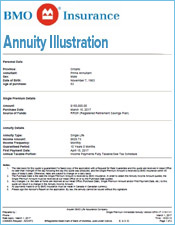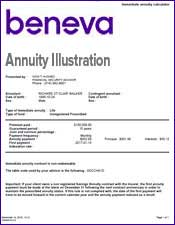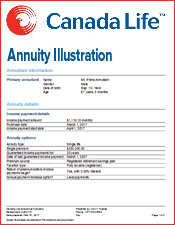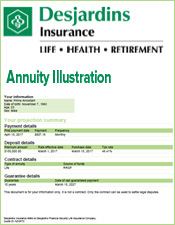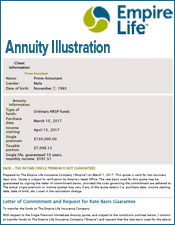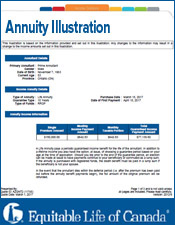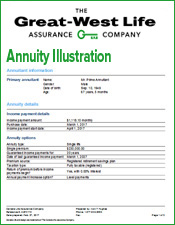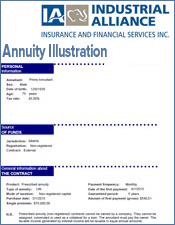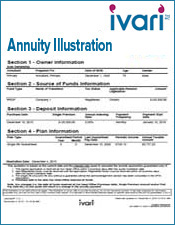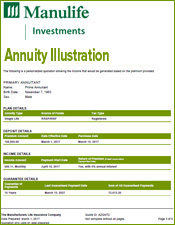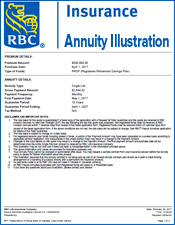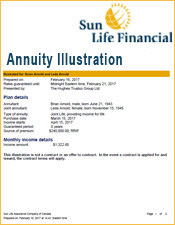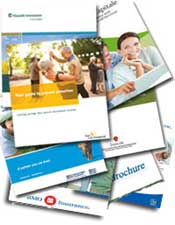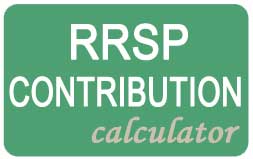How To Properly Plan For Retirement

Create a successful retirement plan
A fulfilling retirement can mean a myriad of different things to different people. Creating a successful checklist, or road map, for this exciting life experience can depend heavily on a person's lifestyle. For some individuals, retirement may mean transitioning from grueling or stressful full-time employment to a more relaxing part-time schedule or a general "passion project." Others may desire to leave a full-time career behind entirely and devote more quality time with family and friends. Other couples still may view retirement as the perfect time to travel the world and see international sights they had always dreamed of.
With this in mind, the very first issue to tackle when retirement planning is mapping out your specific goals.
- What does retirement mean to you?
- What type of lifestyle do you hope to maintain?
- What are the activities that will bring you happiness and peace of mind?
Obviously, these are important questions because if you wish to travel the world for a few years with a partner or friend you may need to spend additional time working in an effort to save money. Conversely, if you wish to transition from full to part-time work, retirement has the potential to come a few years sooner. Make sure to keep track of all financial obligations, including: bills, insurance or car payments, and be mindful not to financially overextend yourself.
John age 59 from Alberta
Take John, for example. At 59, he works as an IT specialist in Alberta, and earns $59,000 per year--just above the national average. He enjoys his position, but is starting to think about retirement. According to recent Canadian Labor Statistics, in 2007, the median retirement age was 61.1 years of age (61.4 for men and 60.6 for women.) John wants to have a nice chunk of of retirement savings in the bank before ending his career, and while he doesn't have an interest in traveling, he would like to spend a few days a week on the golf course. John has been diligent about saving his money, and impressively has nearly $335,000 saved up. Fortunately John also has a small pension to draw from after retirement, and his two-bedroom home is fully paid off. Additionally, his wife Jackie, 58, works as a freelance journalist, bringing in a bit of extra income---typically around $350 a month. She loves the flexibility of her position, and plans on freelancing well into the future. Plus, it gives her the freedom to spend time with her two grandchildren, who live only 15 minutes away with her and John's son and daughter in law.
With an approximate five percent annual return John is projected to save $490,736 by the age of 62, if he continues contributing about $600 each month.
John figures that because his lifestyle preference is not wildly lavish---and he carefully watches his spending--he can retire comfortably by 63, as long as Jackie continues to freelance and he picks up an occasional handy-man job at his golf course. (He loves the atmosphere, and extra work translates to free course play).
So what specifics went into John's decision?
Retirement planning is a lengthy process, and all financial angles should be considered---especially your typical spending patterns. As an example, John and Jackie do not eat out often. Jackie loves to cook at home and try ethnic recipes she researches in various cook books. This actually saves the couple a nice chunk of change. Did you know that cutting out just two restaurant meals each month could save you more than $1,300 a year? John also refuses to spend $4 each day on a fancy latte at the local coffeehouse. He prefers home-brewed coffees, and he and Jackie occasionally treat themselves to a latte on Sundays while they read the newspaper. (Just in case you're saving for retirement, another interesting statistic for you: if you commit to ordering just one less $4 latte a week, you could save more than $200 per year). Developing wise spending patterns far before you consider retirement will put you in a much better financial position in the long run. John and Jackie are careful not to buy items they do not need, and instead prefer to save money they would otherwise spend frivolous things for a rainy day. They are currently in great health, but they like knowing they have saving to fall back on.
Planning for retirement
Planning for retirement also means taking a long, hard look at your debt to income ratio. Debt has a way of pulling down even the most diligent of savers. As a general rule, financial organizations consider a Total Debt Service (TDS) ratio to lie in a favorable zone if it is less than 40%. Total Debt Service ratio simply represents your ability to financially handle your current amount of debt. Simply put: debt is your enemy.
As previously stated, John and Jackie paid off their house in full, so when planning for retirement they didn't need to worry about the burden of a monthly house payment. They also share a vehicle, since Jackie predominately works from home. Their vehicle is also fully paid off, and they are free of credit card debt. Even more importantly, no debt means a complete lack of constantly climbing interest rates each month! Of course, this is the ideal situation, but with hard work and mindful planning, you too can gradually become debt free.
Earlier in their marriage, during months where John and Jackie were able to scrimp and save, they contributed more than the cost of their monthly mortgage, in an effort to more quickly pay down the interest premium on their home. Have a bit of extra cash? Take a page from their book and try to follow the same pattern. Even just $50 or $100 extra dollars each month can result in a home that is more quickly paid off.
Long term planning
Simply for planning purposes, it is always a good idea to keep a running spreadsheet of monthly expenditures and income to get a better idea of the amount of money going out the door. In fact, according to a survey conducted in 2005 of recent retirees, Fidelity Investments concluded that more than half (a whopping 57%) look back on the years prior to departing the workplace and wish they had done more retirement saving and long-term planning before they made the decision to retire. No matter what your age or employment position, now is the very best time!




